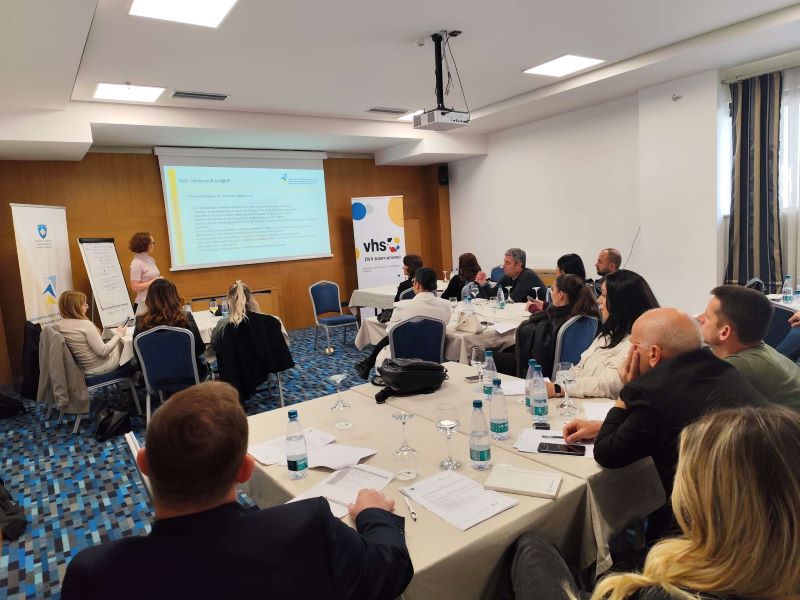From October 28 to 31, 2024, DVV International, in cooperation with the National Qualifications Authority (NQA), organized a four-day training structured into two two-day sessions on the topic:“Capacity Building for Practitioners in the Recognition of Prior Learning (RPL) for Coordinators, Mentors, and Internal and External Evaluators.”
This training was attended by 47 participants, including representatives from non-governmental organizations, various institutions, Vocational Training Centers (VTCs), and other providers in the field of adult education and training in Kosovo. The training aimed to strengthen their capacities in implementing the Recognition of Prior Learning (RPL) process, providing participants with the necessary knowledge and skills to carry out this process in line with national standards and policies.
The training was led by two field experts: Mrs. Bleta Kadriu, Expert on Professional Standards at the National Qualifications Authority (NQA), and Mrs. Donjeta Nimani Bince, Senior Officer for RPL at the NQA. They shared their expertise in implementing Recognition of Prior Learning (RPL), using professional standards, developing qualifications, and the certification process through RPL. Additionally, Mrs. Rozafa Limani, the project coordinator from DVV International, presented an overview of the projects carried out in collaboration the NQA related to the implementation of the RPL component in Kosovo.
The main contents of the training included two training sessions, each lasting two days. The first day was oriented towards the process of Recognition of Prior Learning (RPL), providing in-depth information on the benefits of this process and the legal and institutional framework that supports its implementation. The second day focused on the key role of RPL practitioners, including Coordinators, Mentors, and both internal and external Evaluators, emphasizing the importance of their engagement in the success of the prior learning recognition process.
By the end of the training, participants gained a deeper understanding of:
- The RPL process
- Benefits of RPL
- The profile of the RPL candidate
- The legal and institutional framework for RPL implementation
- Stages of the RPL implementation process
- The role of RPL practitioners in the RPL implementation process
Additionally, participants received detailed information about the application and accreditation process at the NQA, gaining insight into the stages involved and the key internal elements that need to be considered.
Throughout the training, participants were divided into working groups to review their duties and responsibilities in implementing the RPL, thus enhancing their understanding of their role in this process.
During this training, participants engaged in working groups to analyze their tasks and responsibilities in implementing Recognition of Prior Learning (RPL), deepening their knowledge and understanding of the roles of RPL practitioners, including Coordinators, Mentors, and both internal and external Assessors in this process. Through an interactive approach that included presentations, discussions, and practical exercises, they exchanged experiences, shared insights, and addressed challenges encountered during the implementation of RPL.
On this occasion, participants received a certificate of participation, which confirms their commitment and the knowledge gained during the training.
In conclusion, this activity achieves an important objective in advancing professional capacities and improving qualifications in adult education in Kosovo, supporting sustainable and inclusive development.









